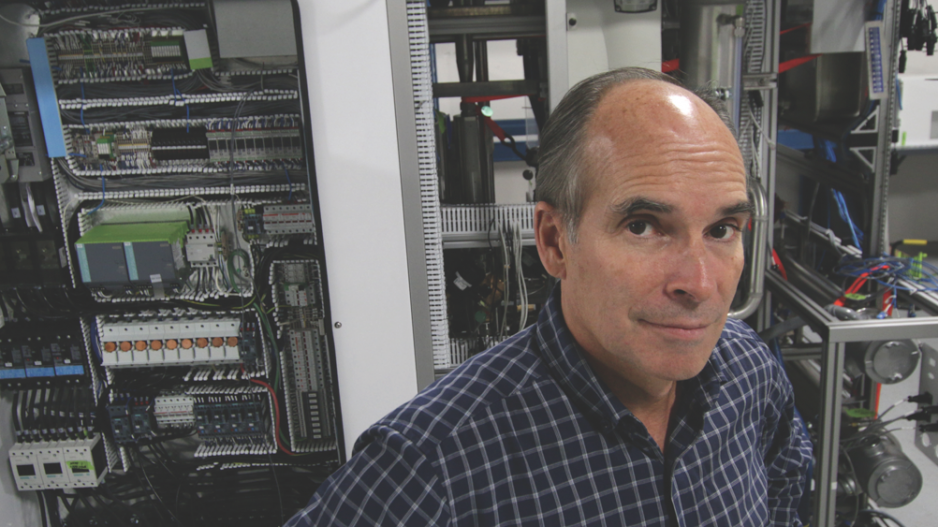A Metro Vancouver manufacturing firm lost between 20% and 30% of its potential business last year due to the region’s lack of affordable land, and the company’s top executive is imploring the province to consider digging into B.C.’s agricultural land supply as a solution.
Greenlight Innovation president and CEO Ross Bailey added that not doing that digging will ensure that B.C. will continue to fall behind other jurisdictions in economic development, especially in sectors like green technology, where the global market landscape is becoming hypercompetitive for talent, cost certainty and efficiency.
Bailey noted that expensive land creates two key problems:
•high residential costs increase the difficulty of attracting scientists and engineers to the city; and
•the lack of industrial land means it is almost impossible to expand without making operational sacrifices such as moving into warehouse buildings that lack adequate power supply to support a tech-manufacturing operation like Greenlight’s.
“If we had more people and more power, we could have been doing 20% to 30% more business this past year,” said Bailey, whose company specializes in sensors and test stations for alternative energy applications like fuel cells, batteries and hybrid electric vehicles. “We’ve had to bring in a diesel generator just to make up electrical power in the building here. There’s a bit of irony there, given that we are a clean-tech company … but we need the power.”
Greenlight, currently based in Burnaby, has grown rapidly in the last two years – a trend driven by huge demand from vehicle manufacturers to turn out zero-emission products in light of regulatory deadlines and incentives imposed in jurisdictions like the United States and China.
Many of Greenlight’s main clients are either major carmakers from markets like Germany, South Korea and China or their key suppliers, keen to test the efficiency and effectiveness of new electric, hybrid and fuel-cell systems.
A decade ago, Greenlight had nine employees; today it has more than 100, and Bailey said the company hopes to hire for an additional 40 positions within 18 months – if the labour and industrial land situation improves.
Unfortunately, the lack of affordable housing in Metro Vancouver has meant that companies like Greenlight not only are unable to attract new talent here but also now face the challenge of having to fight to keep or “re-recruit” current employees.
“We’ve actually had a few employees leave the Lower Mainland because they wanted to buy a house and start a family,” he said. “A couple of them moved to Ontario.… For people coming from, say, Michigan – where people are from traditionally in the automotive sector – it would not make sense for them to come here. And here in Canada, with the oil downturn the last few years, we were receiving quite a few resumés from Alberta. So we made three job offers to candidates from there, and they all turned us down after they came here to kick the tires and look for housing.”
Bailey added that the problem is exacerbated by the lack of a B.C. manufacturing hub. The wealth of manufacturing jobs in places like Ontario and Michigan draws an abundance of talent that can be tapped to support burgeoning firms.
In B.C., companies often have to hire engineers straight out of school to avoid losing more talent to other regions.
“There are definitely lost jobs, and they are being lost to foreign jurisdictions,” Bailey said. “And these are high-quality jobs; of our 105, 110 people, we’ve got over 60 engineers and scientists, plus a number of other professionals. And these jobs are going elsewhere if companies like ours are having problems scaling up.”
On the industrial land shortage front, officials noted that the region is plagued not only by a lack of industrial land, but also by the fact that the majority of existing industrial properties are filled with low-power warehouses ill-suited for tech-manufacturing use. Bailey added that for a tech company to move quickly in an industry where the landscape is constantly changing, it is crucial to have design, engineering, manufacturing and decision-making departments at the same location. In land-poor Metro Vancouver, finding a single space to fulfil all criteria can be almost impossible.
“We’ve been fortunate that we are in a building where we can stay and expand as vacancies occur, so we have increased our facility size from 22,000 square feet to 36,000 square feet just a few months ago,” he said. “But with that comes challenges with parking, and we are using most of the power coming into the building for testing our equipment … but when we look at alternative facilities, very few times do we find anything with what we need.”
Despite all the challenges, Bailey said his company is not looking to leave Metro Vancouver, but he said the province could do more to help companies like Greenlight to bring more clean-tech jobs to B.C.
“I believe the province should review the sanctity of the ALR [Agricultural Land Reserve] and consider freeing up agricultural land for industrial usage, in and around the Lower Mainland,” he said. “This shortage of land is costing the province jobs and economic development, plus it is contributing to the high cost of commercial real estate, which makes companies like Greenlight less competitive in a global market.
“If our business is located in Washington state, real estate would be plentiful, and facilities would be much lower-priced. For us to build a building here, it would cost north of $20 million.… If we were in Michigan, that would cost $1 million to $2 million. And that makes a big difference for us, because we have to compete with companies in lower-cost jurisdictions.” •




